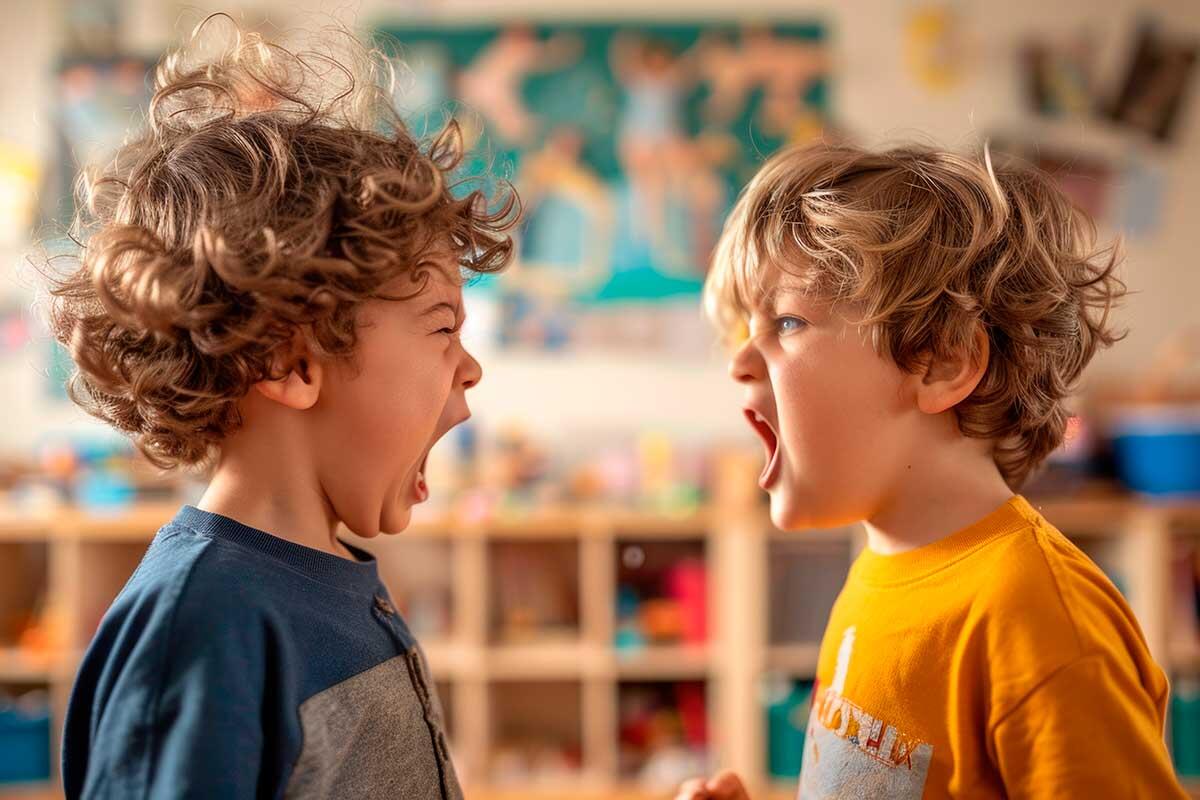What to Do When a Child Hits Their Peers?
Dealing with aggressive behaviors, such as a child hitting their peers, can be challenging for parents and educators. While this behavior is common during certain developmental stages, addressing it promptly is crucial to avoid long-term emotional and social issues.
Understanding the reasons behind a child’s aggression is the first step in addressing it effectively. With the right strategies, parents can teach children to manage their emotions and build positive social skills.
Why Does a Child Hit Their Peers?
Aggressive behavior often stems from a child’s inability to handle intense emotions such as frustration or anger. This response is frequently linked to emotional immaturity or difficulties expressing themselves verbally.
Triggers may include changes in the family environment, adjusting to school settings, competition for toys or attention, and a lack of coping mechanisms. Identifying these causes is key to tailoring solutions that meet the child’s specific needs.
How to Address the Situation in the Moment
Intervene Calmly and Immediately
When an incident occurs, it’s important to act quickly but remain calm. Separate the child from the conflict and, in a composed tone, explain that hitting is unacceptable. Avoid shouting or reacting aggressively, as this can reinforce negative behavior.
Use clear language, such as, “I understand you’re upset, but hitting isn’t okay. Let’s talk about what happened.” This approach encourages reflection and helps the child understand their actions.
Teach How to Express Emotions
Children often resort to hitting because they lack the skills to articulate their feelings. Help your child identify emotions with statements like, “Were you frustrated because it wasn’t your turn? Let’s find another way to solve this.”
Encourage the use of words to express feelings or seek help from an adult when conflicts arise. Teaching these alternatives can reduce future outbursts.
Strategies to Prevent Aggressive Behavior
Teach Social Skills
Group activities are an excellent way to nurture social skills. During these interactions, model behaviors such as sharing, taking turns, and resolving conflicts peacefully.
Reinforce positive actions with praise, such as, “Great job asking for the toy instead of grabbing it!” Positive reinforcement helps strengthen desired behaviors.
Set Clear Rules and Boundaries
Clearly explain what behavior is acceptable and what isn’t, ensuring the child understands the consequences. For instance, “If you hit, we’ll need to stop playing.”
Consistency in applying these rules helps the child internalize boundaries and understand the importance of respecting others.
Help Your Child Manage Their Emotions
Teach self-regulation techniques such as deep breathing or counting to ten before reacting. Practice these strategies during calm moments so the child can apply them when needed.
Books or stories about emotions can also be valuable tools to discuss handling intense feelings.
How to Involve Educators and Peers
Collaboration with teachers is essential in addressing aggressive behavior. Discuss the context of incidents with educators and develop consistent strategies together.
Additionally, teach peers how to manage conflicts constructively, promoting a healthier and more inclusive environment in the classroom.
When to Seek Professional Help?
If aggressive behavior persists or worsens despite interventions, it may be time to consult a child Psychologist. Professionals can identify underlying emotional or developmental issues and recommend appropriate interventions.
Seeking help is especially important if the child shows signs of anxiety, social withdrawal, or uncontrollable anger. At Clinic Consultation, our specialists are ready to provide personalized support and effective strategies for managing challenging behaviors.
Conclusion
Hitting peers is a common behavior during childhood, but it can be addressed effectively with patience and appropriate strategies. Adults play a vital role in teaching children how to express their emotions healthily and develop positive social interactions.
If you are struggling to manage this situation, schedule a consultation with the specialists at Clinic Consultation. Our team is here to help your child overcome challenges and build a foundation for emotional well-being and healthy relationships.
